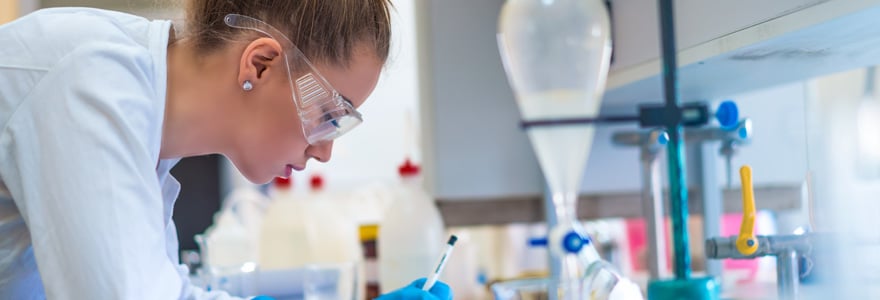Advancing Your Biotechnology Career: Master’s Programs in Europe

Biotechnology is a rapidly growing field that offers exciting opportunities for professionals seeking to advance their careers in this dynamic industry. However, with so many master's programs available, it can be difficult to know where to begin your search. In this article, we'll explore some of the top Biotechnology Master's Programs in Europe, as well as the reasons why you should consider pursuing a graduate degree in this field. We'll also examine the different types of programs available, the curriculum and specializations offered, and the career opportunities that await graduates of these programs. Whether you're just starting out in your career or looking to take your skills to the next level, a biotechnology master's program can help you achieve your goals and realize your potential in this exciting and constantly evolving field.
Biotechnology Master's Programs in Europe
Biotechnology is an interdisciplinary field, which combines biology with engineering, computer science, and other related areas to create new products and technologies that benefit humanity. The field has grown significantly in recent years, and as such, there are many universities offering biotechnology master's programs throughout Europe. The program's critical objective is to provide advanced knowledge and skills that would equip graduates with comprehensive training in biotechnology, allowing them to work in different sectors and be at the forefront of biotechnology advances.
Reasons to consider a Master's program in biotechnology
The biotechnology industry is growing at an unprecedented rate, characterized by rapid technological innovations and increasing demand for new products and technologies. Biotechnology master's programs provide students with the cutting-edge knowledge and expertise necessary to succeed in this rapidly developing field. In addition, advanced degrees in biotechnology provide graduates with unique career advantages, such as better job opportunities, higher salaries, and the chance to work on groundbreaking research projects.
- Gain advanced technical knowledge and hands-on experience
- Increase your earning potential
- Position yourself for career advancement
- Join the ranks of innovative professionals on the cutting-edge of technology
Types of biotechnology Master's programs
Biotechnology master's programs are designed to provide students with a range of specialized knowledge and technical skills to apply biological processes to industrial production or other uses. Some of the common types of biotechnology master's programs include:
- Molecular Biotechnology
- Bioprocess Technology
- Environmental Biotechnology
Molecular Biotechnology
Molecular biotechnology is an interdisciplinary field that focuses on understanding the basic principles behind biological systems at a molecular level to create new applications, drugs, or materials. This field provides students with advanced knowledge of modern molecular techniques, including cell culture, genomics, proteomics, and bioinformatics, and the skills to apply them in different industries.
Bioprocess Technology
Bioprocess technology is a specialized biotechnology field that aims to develop and optimize bioprocesses for the industrial production of biopharmaceuticals or biofuels. Bioprocess technology master's programs offer courses that focus on key aspects of bioprocessing, including upstream and downstream processing, analytical techniques, and bioreactor design.
Environmental Biotechnology
Environmental biotechnology is a critical field that focuses on using biological processes to improve the environment. It encompasses research on the treatment of wastewater, air pollution abatement, soil remediation, and hazardous waste treatment. Students in this program learn about the application of biological principles to the environment and explore how to develop new technologies that minimize the environmental impact of industrial processes.
Curriculum and Specializations in Biotechnology Master's Programs
The curriculum of biotechnology master's programs varies depending on the school and the specific degree. Nonetheless, most curriculums include advanced coursework in molecular biology, microbiology, biochemistry, and other related sciences. Students choose from a range of specializations depending on their interests and career goals. Some of the primary specialization areas include:
- Industrial Biotechnology
- Medical Biotechnology
- Pharmaceutical Biotechnology
- Plant Biotechnology
Industrial Biotechnology
Industrial biotechnology is concerned with the application of biological organisms or systems to produce goods or services of industrial value. This specialization includes the production of chemicals, food products, fuels, and biomaterials, among others.
Medical Biotechnology
Medical biotechnology is concerned with the development of new drugs, vaccines, and diagnostic tests that utilize biotechnology techniques. Students in this specialization explore the intersection between biology and medicine, studying topics such as pharmacology, immunology, and biophysics.
Pharmaceutical Biotechnology
Pharmaceutical biotechnology deals with the design, development, production, and evaluation of drugs and vaccines using biotechnology tools. Students in this specialization explore topics such as molecular biology, genetics, and pharmacology, and develop the skills necessary to pursue careers in drug discovery and development.
Plant Biotechnology
Plant biotechnology is a specialized field that focuses on the use of biotechnology tools to enhance the production, yield, and quality of crops. Students learn plant physiology, biochemistry, molecular biology, and genetics and explore how to develop new plant varieties using genetic engineering and other biotechnology techniques.
Career Opportunities for Biotechnology Master's Graduates
Biotechnology master's graduates are well-positioned to enjoy an array of career opportunities in research and development, production, and management across various fields. Graduates can work in the pharmaceuticals, medical devices, agriculture, biotech, or environmental industries, just to mention a few. Some of the most popular biotechnology careers include:
- Biotechnologist
- Biomedical engineer
- Research scientist
- Process development associate
- Quality assurance specialist
Whether you are passionate about research, science, or the engineering aspects of biotechnology, a biotechnology master's program in Europe might help you acquire the necessary expertise to flourish in a high-growth demand for new products and technologies.